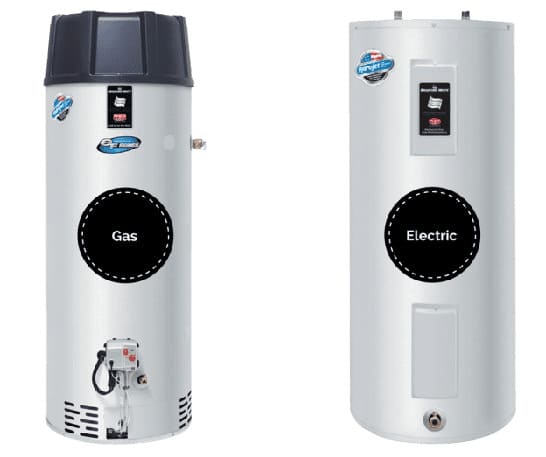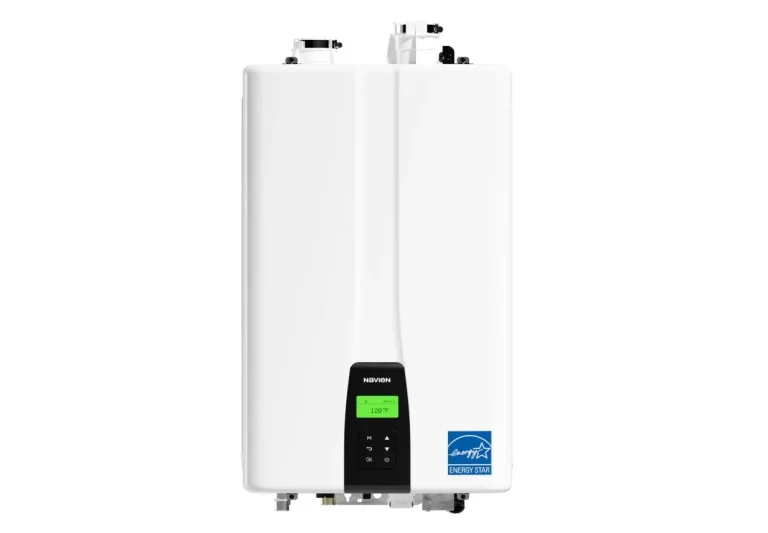Gas Or Electric Water Heater? Which One Is Best for You?

The choice between gas or electric water heaters is a crucial decision for homeowners seeking to maximize their energy-efficient heating system. From the cost of installation to environmental impact and efficiency, choosing the best water heater will save you cash and help you save energy by offering both the advantages and disadvantages of electric and gas alternatives. This guide will explain all you need to know about gas and electric water heaters so that you can make an educated decision.
Key Differences Between Gas vs Electric Water Heaters
Electric and gas powered water heaters can do the same thing, heating water. Still, they perform this task in totally different methods. Knowing the differences is essential.
1. Heating Speed
- Gas Heaters Gas water heaters can heat water faster since they utilize flames to generate heat. This type of heating is excellent for large homes with a high-water consumption since gas heaters heat water more quickly than electric models.
- Electric Water Heaters utilize heating elements within the tank. While they may be slower than traditional water heaters, these heaters run at a steady speed and ensure consistent performance, particularly when they heat water effectively.
2. Installation Costs
The process of installing a water heater will depend on the infrastructure of your home:
- Gas Heating units require connection to the natural gas line as well as the proper venting of combustion gasses. If your home isn’t equipped with gas appliances, installation costs may be higher with electric models.
- Electric heaters Electric heating systems are easier to install because they only require electrical power. They are also less expensive for the initial cost, particularly in homes with no gas connections.
3. Operating Costs and Energy Efficiency
- Gas heaters typically are less expensive to run since natural gas is usually more affordable than electricity across many areas. However, they are more energy-efficient (standby loss of heat) because of combustion.
- Electric heaters are energy efficient because they do not lose heat the same way. Modern models that are energy efficient are specially designed for low energy usage.
4. Maintenance Requirements
- Gas water heaters typically require more maintenance, including cleaning the burner, and also looking for leaks in the gas.
- The electric water heaters can be simpler to maintain, as they have smaller components that need maintenance and no chance of gas leaks.
Efficiency and Cost Comparison
In terms of cost efficiency and effectiveness, gas and electric options have strengths and flaws.
Energy Efficiency
Electric water heaters possess an advantage in the area of energy efficiency. They generally have fewer heat losses and utilize energy more efficiently, which makes water heaters a good option for those who are concerned about energy. For example:
- Electric models can be certified with energy factor (EF) ratings of 0.9 or more.
- Gas models, although getting better, could have a smaller (EF) rating, which is usually in the range of 0.6 and 0.7. However, gas water heaters usually are efficient in heating the hot water requirements of your household.
Regional Cost Differences
The price of operating either a gas or electric heater is primarily based on the area you live in as well as the kind that you choose.
- If the electricity costs in your area are expensive, Gas heaters are typically cheaper.
- In contrast, areas with low electric costs allow electric water heaters to be the most affordable option.
Environmental Impact of Water Heating
Electric water heaters don’t produce emissions directly, which makes them an environmentally friendly option in particular when renewable sources of energy pair them. Contrarily, gas water heaters depend on fossil fuels that generate carbon dioxide.
Pros and Cons Types of these Water Heaters
Every water heater comes with its pros and cons. Be aware of these aspects in deciding the kind of water heater you want to use.
Gas Water Heater Pros & Cons
Pros
- Rapider heating of water.
- Lower energy costs in areas that have cheap natural gas.
- It is ideal for households that are larger and have high water usage.
Cons
- Costs for installation upfront are higher when venting or gas lines are needed for the tankless water heater.
- It requires regular maintenance of the burners and vents.
- emits greenhouse gases, making it less environmentally friendly.
Electric Water Heater Pros & Cons
Pros
- Simple installation with less initial cost.
- More efficient energy use and less loss of heat from burning are the main benefits of modern systems for water heating.
- Easy maintenance and fewer components to maintain.
- It produces no emissions directly, providing an environmentally friendly alternative.
Cons
- The heating time is slower compared to gas models.
- Costs of operation are higher in areas with high electricity costs.
- It is less effective for homes that have high water demands.
Which Is Best for You? Gas or Electric Water Heater
The choice between gas and electric water heaters boils down to your personal wants, budget, and environmental preferences. You should consider the advantages and disadvantages of both alternatives. Here’s how you can choose the right water heater to meet your requirements:
1. Consider Your Household Size
If you live in a home with a large demand for water, gas heaters guarantee that hot water is readily available and regularly. smaller households or those who use less frequently might consider an electric water heater adequate and cost-effective.
2. Evaluate Your Energy Costs
Find out the average gas and electricity rates in your region to make an informed choice. Gas heaters are a hit in regions with natural gas prices that are affordable, and electric heaters are best suited to areas that have low electricity costs.
3. Think About Environmental Impact
If you’re seeking to lower the carbon footprint of your home, using an electric heater, particularly when combined with solar panels or with other sources of energy that are renewable, is the most efficient choice.
4. Assess Initial Vs. Long-Term Costs
Gas heaters may need a greater initial investment, but they can help you save money on utility bills. Electric heaters could be less expensive upfront and ongoing costs; however, they may be more expensive in the long term for electricity, depending on the area.
Finally Make An Informed Decision Comparing Gas vs Electric Water Heater
If you are considering the right electric or gas water heater, consider the costs of installation and heating speed, efficiency and the environmental impact. If you opt for gas because of its capacity and speed or an electric model because of its simplicity and efficiency, understanding your requirements will help you make the most suitable choice for water heaters.
The next step is to select the right heating system for the home you live in. Evaluate your energy requirements today and talk to an expert for the best water heating option, regardless of whether tankless or traditional, to suit your needs!


One Comment